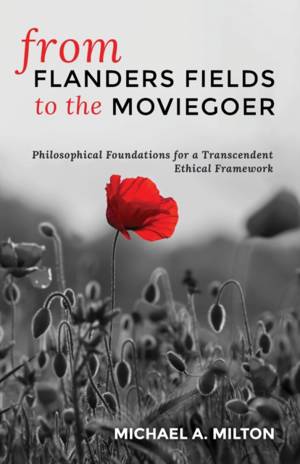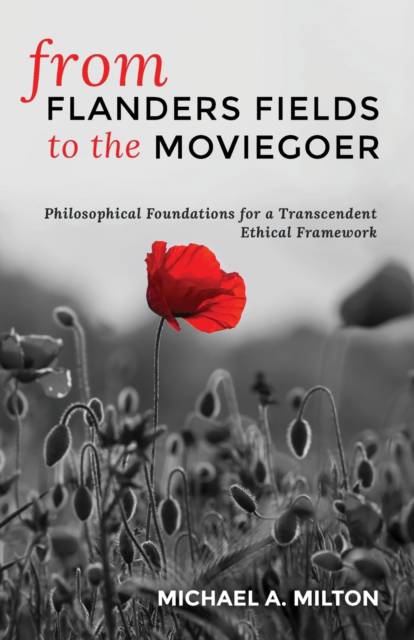
Je cadeautjes zeker op tijd in huis hebben voor de feestdagen? Kom langs in onze winkels en vind het perfecte geschenk!
- Afhalen na 1 uur in een winkel met voorraad
- Gratis thuislevering in België vanaf € 30
- Ruim aanbod met 7 miljoen producten
Je cadeautjes zeker op tijd in huis hebben voor de feestdagen? Kom langs in onze winkels en vind het perfecte geschenk!
- Afhalen na 1 uur in een winkel met voorraad
- Gratis thuislevering in België vanaf € 30
- Ruim aanbod met 7 miljoen producten
Zoeken
From Flanders Fields to the Moviegoer
Philosophical Foundations for a Transcendent Ethical Framework
Michael A Milton
Paperback | Engels
€ 24,95
+ 49 punten
Uitvoering
Omschrijving
How do educators, clergy, attorneys, and the concerned public come to terms with meaningful, workable ethics in an age that eschews any attempt to define truth and error? Michael A. Milton has addressed that question in the new monograph, From Flanders Field to the Moviegoer: Philosophical Foundations for a Transcendent Ethical Framework. Milton draws on English literature, sociology, history, public policy, and theology to mark milestones in the cultural journey from the philosophical crisis after World War I, the end of modernity and the introduction of the "theater of the absurd" in post-modernity. Rather than merely a survey, this monograph proposes a "way forward" in teaching metaphysical ethics. Originally given as a paper before American and British defense leaders in Washington, DC, Milton's original paper is now expanded for use in undergraduate, graduate, and postgraduate classrooms, as well as libraries and professional military education.
Specificaties
Betrokkenen
- Auteur(s):
- Uitgeverij:
Inhoud
- Aantal bladzijden:
- 90
- Taal:
- Engels
Eigenschappen
- Productcode (EAN):
- 9781725251496
- Verschijningsdatum:
- 24/10/2019
- Uitvoering:
- Paperback
- Formaat:
- Trade paperback (VS)
- Afmetingen:
- 140 mm x 216 mm
- Gewicht:
- 113 g

Alleen bij Standaard Boekhandel
+ 49 punten op je klantenkaart van Standaard Boekhandel
Beoordelingen
We publiceren alleen reviews die voldoen aan de voorwaarden voor reviews. Bekijk onze voorwaarden voor reviews.









